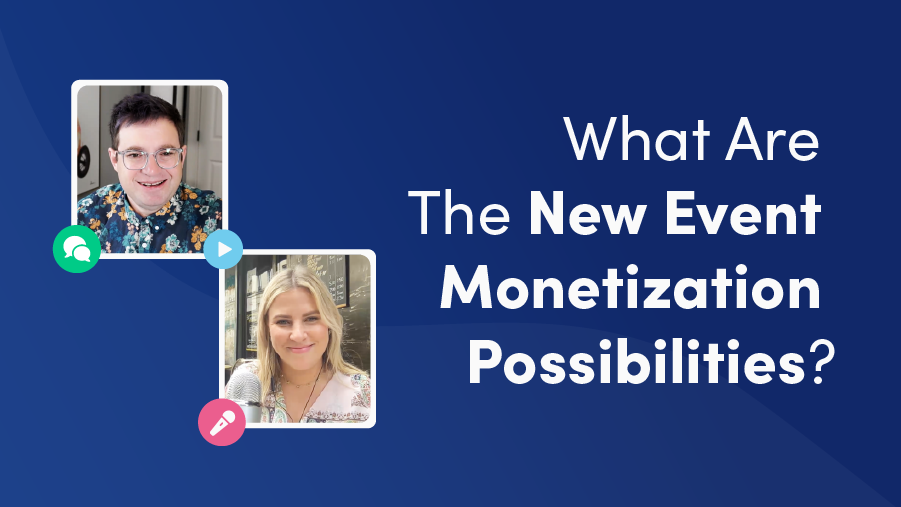Current circumstances have forced event organizers to rethink their approach to marketing their events — and executing the events themselves. In-person gatherings are getting either rescheduled, postponed, or cancelled altogether, and those that push through have gone virtual. But C&IT Magazine notes that even traditional components like gala dinners, hosting a live performance, or DJ-ing, can all still be achieved remotely, and their benefits can even be more significant than offline events since audiences these days have a hankering for interactions, more unique experiences, and points of differentiation.
The pandemic has given organizers a chance to think outside of the box and completely rethink the way they have been conducting events. The situation became a catalyst for them to re-evaluate their approach. Virtual events and hybrid events have become the new norm, and they're most likely here to stay for the foreseeable future.
Virtual vs. Hybrid Events
The National Press Club highlights that the common goal of events is to bring people together for a shared purpose, may it be to educate, inform, debate, or celebrate. Traditionally, live in-person events have been the best and ideal way to meet these goals, but thanks to technological advancements, there are several different types of events you can host. You may choose to hold a virtual event, where people attend the event entirely online, or you may host a hybrid event, in which some attendees participate in person, while others do it online.
Virtual events are ideal, especially now that resources come at a premium and some regions have banned large gatherings altogether. These can be planned and deployed quickly, with a significant reduction in costs. Attendees also don't have to travel, so you can attract audiences across the globe. On the other hand, hybrid events offer the best of both worlds. Some of the participants opt to attend face-to-face, while others engage remotely, facilitating overall interaction. Like virtual events, hybrid events also allow attendees from wherever they are in the world to take part in the program, letting you expand your impact irrespective of geography.
Marketing virtual and hybrid events
1. Create good content
Just like doing marketing for in-person events, marketing virtual and hybrid events involves crafting valuable content so people can take notice. However, the American Marketing Association notes that before creating content you should understand your audience, their pain points, and what they will gain by participating in your event. Make sure that you're communicating how unique and valuable the experience you'll be providing will be. Additionally, you should also experiment with different engagement approaches and various dissemination formats.
2. Optimize for SEO
There's no point in creating good content if nobody sees it. Ayima's Kickstart program emphasises that good content is not enough – sometimes, technical problems with search engine optimisation (SEO) makes it harder for you to reach your target audiences. These technical SEO problems are among the biggest hurdles that business websites encounter, and many event planners may find that they lack the development resource to be able to address these concerns themselves. If you don't have a dedicated SEO team, it might be best to hire a professional – these people are trained to develop the content on your website and generate traffic so that more people become aware of your event, sort of like your own private advertising team.
3. Get social
Instead of just utilising your own social media pages, you might also consider the social media channels of your key stakeholders and partners to help promote your virtual events. Ask them to directly notify their contacts and followers about the event, as it will benefit them as well. And in order to get noticed on social media, you might want to use engaging content like videos and dynamic images that can drive excitement and share teasers of the event.
4. Show that you care
The Trade Show News Network recommends scrubbing your database and sending out e-marketing flyers or newsletters to your contacts expressing the benefits of your virtual event. When doing this, you should also show your heartfelt concern for everyone's wellness and safety, as well as promote any interesting factors about the speakers, everything that will be learned, and spotlights on key vendors that will be present. It's also vital that you create a news release and sent it out over the wire. By doing this, it will supplement your SEO efforts that could drive new consumers to your event for years to come.
5. Wrapping up
These days, most—if not all—events are virtual right now. But it's still essential for companies to reach their target audiences. Swapcard's Evolve launch is a perfect match for event organizers trying to cope in these unprecedented times. Understanding how audiences think will become crucial in the marketing and presenting of their own virtual events in the future. Through Evolve: The Virtual Event for Planners, you will have access to a community of event professionals, where you will be free to interact, network, and share best practices with one another. It will be a safe space for you as everyone is facing the same challenges as you do.
Submitted by Alisha Robert
For the exclusive use of swapcard.com









